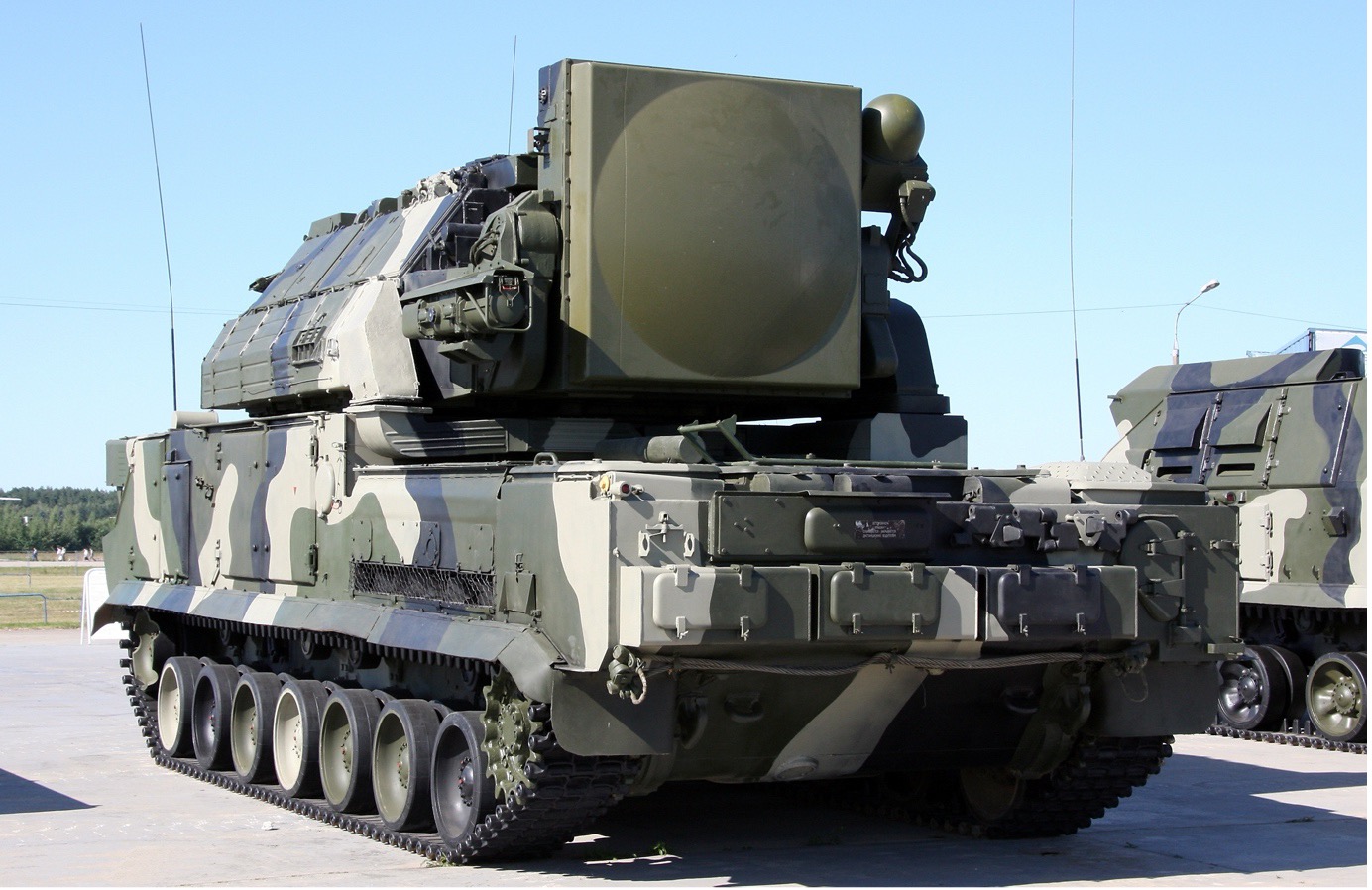On Sunday, June 18, Robert Zubrin, an aerospace and nuclear engineer, author and founder of the Mars Society, spoke to the InScience 2023 conference about how science and space technology will bring victory for Ukraine in the current war and launch the nation into being a standout technology leader in Europe and the World. His message was that science and technology, talent and ingenuity, are the keys to gaining superiority over Russia, and that by embracing science and space Ukraine will prevail.
In attendance at the two-day event, in Kyiv and online, were scientists, engineers, tech entrepreneurs, healthcare and military professionals, and journalists. The conference aimed to highlight how science and the newest technology will help to rebuild Ukraine. Zubrin sought to inspire Ukrainians and succeeded. The attendees were heard to be widely discussing his remarks throughout the rest of the conference.
JOIN US ON TELEGRAM
Follow our coverage of the war on the @Kyivpost_official.
Zubrin opened his talk with, in Ukrainian: “Pryvit! I dyakuyu za zaproshennya,” meaning “Hello! And thank you for the invitation.”
“I’m here to talk about: Victory from science, victory from space. How Ukraine can become a leader in the space flight revolution, and it must.”
Science is an element of practical wisdom that sustains courage in the defenders of freedom... “We scientists are the armorers for the knights.”
“Science can give Ukraine space, and space can give Ukraine victory.”

Shift in Ukrainian Attitudes Toward War Endurance as Belief in Russia’s Resources Grows
“This is, in fact, the first space-based war,” he said, explaining that the two weapons that took out the Russian Black Sea fleet’s Moskva were space-based, using satellite reconnaissance to provide targeting information.
Zubrin said that in August 2014, Ukraine was winning the land war around Donetsk but since the US and others didn’t provide the space-based satellite reconnaissance information that would warn Kyiv that the Russian-backed forces were enveloping them. This resulted in defeat of Ukrainian forces in the Second Battle of Donetsk Airport.
He said that Ukraine needs to develop its own capabilities in this area, including its own reconnaissance satellites and the ability to deny Russia capabilities of this kind by knocking out Russian satellites in orbit around the Earth.
“Right now, there are Russian satellites flying over, looking down on you,” which include visual reconnaissance, radars tracking troop movements, and topographic satellites “that are used to plan the attack routes for cruise missiles which fly very low and have to avoid terrain features and even tall buildings,” he told the gathering.
“They should not be allowed to do that. They are only at 500 kilometers altitude. I’m telling you that you have the capability to … knock those things down. And you should.”
According to him, the US won’t do it because it would be an act of war, but Zubrin says: “You are entitled to do acts of war against Russia.
“People will say, ‘oh, but you’re turning them into orbital debris. Well, that would be a good thing to turn them into.”
Beyond the War
“Accepting the challenge of space develops intellectual capital,” he said. He gave the example of the increase in STEM (science, technology, engineering and maths) university graduates during space race of the 1960s, particularly the Apollo program. In that decade the number of STEM students doubled and in some fields even tripled, “at every level – high school, [undergraduate], PhD.”
“Why? Because the reach for the moon made science the great adventure. And youth loves adventure ... I’m one of Apollo’s children … We were going to the moon, and I was all in.”
He pointed out that, while he actually ended up working in the space program, others went on to build Silicon Valley, “computers and the internet, biotech … The point is not that they end up doing space, they end up doing all sorts of things that benefit space, national defense, industrial competitiveness, public health, you name it.”
“You want to develop your intellectual capital.” Bullet points on his slides, which summarized his advice, included:
· Space can give Ukraine a place in the future;
· Great nations do great things;
· This is a great age of discovery and Ukraine should play its part;
· New branches of human civilization will be born in space;
· Those nations that take part will be those who put their stamp on the future.
“It’s important in the here and now. Even if you’re in the trenches, it’s important to be able to look up and see the stars.”
Ukraine doesn’t need just to survive but to define itself.
In 500 years only historians will know of Putin. But everyone will remember how Ukraine contributed to world freedom and knowledge advancement.
“Vibrant commercial space technology is the key to military space technology. Space technology benefits all other industries. It can help agriculture with remote sensing.
“Space builds intellectual capital. Science in space is an inspiring space adventure. Intellectual capital has benefits everywhere.”
Purpose driven not vendor driven.
Using NASA as an example, he said sometimes they “spend money to do things” [purpose driven] making them very efficient and they “do incredible things.” Other times they “do things to spend money” [vendor driven] wasting “things and accomplishing nothing.”
Zubrin said Ukraine needs to pursue purpose: Develop drone systems using balloons to lift cheap drones to stratospheric launch points which would extend the range of small drones from 30 km to 300 km.
“Embrace and lead the small sat revolution,” he said. “This makes use of new small satellites of 10 kg that can now do what older satellites needed 1,000 kg to do.” He wants Ukraine to become leaders in efficiency and innovation derived from the newest technologies.
Zubrin told Ukrainians to get on board and to join International Space Agency (ISA) missions and NASA missions. “Put instruments on them, participate in them.”
His advice continued:
“The Ukrainian government should facilitate the participation of all sorts of Ukrainian companies including private companies, not just state companies,” he said, advocating for competitions and inclusion of talented small scientific adventurers on the frontiers of science and technology: “Let everybody play the game.”
“Then, you want to launch your own planetary missions. Think about this: The United Arab Emirates sent an orbiter to Mars. If they can do it, you can do it…
“Do some stuff on your own. Set an example to these European countries.
“You know, the United Kingdom has never done any interplanetary mission on its own. France. Germany. Show them up.”
“Develop things that other people are not developing. There is a critical need for space military power. You have the technologist who can develop that – you should. And be the one with the missing piece.
“And I believe if you do this, you can become superior in space military technologies to Russia. Superior.
“Not by borrowing American capabilities, but by having your own.
“The Russians will always have three times as many infantry [forces] as you. But you can be stronger overall” through superior technology, developed by a free and independent European Ukraine.
Why it’s important for the world: ‘a house divided against itself cannot stand.’
Citing the example of the US Civil War, which pitted slaveholders against fighters for freedom, Zubrin used Abraham Lincoln’s famous 1858 speech to say that the world will either become all slave or all free.
“The slavocracy was defeated because the Union [freedom fighter side] was able to attract and mobilize the talents of the free people.
“The world today is thus divided. The world today is half slave and half free. And I believe this war, here, now, is determinate: it’s the fork in the road that is going to determine [the world’s future].
“It’s all going to become one day all one [free] or all the other [slave].
“The forces of slavery believe they can win because they can mobilize people and not care whether they live or die. Whereas we, the free, care about whether we live or die.
“By mobilizing the people who believe in life and have the capabilities of freedom, we can beat these people [the Russian invaders].
“Freedom is the parent of science, and also the child of science. Free thought gives us truth – science is the search for truth.” And he links this to winning:
“I want Ukraine to develop its scientific capabilities to win. I want Ukraine to develop its scientific capabilities so it can be free. I want Ukraine to develop its scientific capabilities so it can contribute that capability to the alliance of free peoples everywhere.
“Because we are all in this together. So, let’s win this together,” said Zubrin.
“While the US is giving its capabilities to you, you are giving something to the world.
“Ukraine has put the spirit back into the West of what the West is supposed to stand for: a civilization based on freedom and the dignity of mankind,” Zubrin said, just before his final words:
“You’ve struck up the band and taught the band to sing. Slava Ukraini!”
Dr. Robert Zubrin holds a B.A. in Mathematics, an M.S. in Aeronautics and Astronautics, and an M.S. and a Ph.D. in Nuclear Engineering.
Zubrin’s books include: “The Case for Mars,” “The Case for Space” and “Entering Space: Creating a Spacefaring Civilization,” among others. His latest title (2021) “The Case for Space” is published in English and Ukrainian.
You can also highlight the text and press Ctrl + Enter






